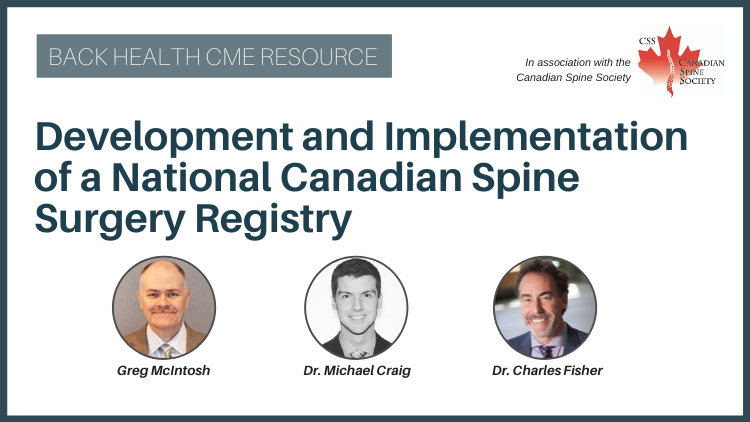1Director of Research Operations, Canadian Spine Outcomes and Research Network.
2Neurosurgery Resident at Vancouver General Hospital, University of British Columbia.
3Professor and Head of the Division of Spine Surgery, Combined Neurosurgical and Orthopaedic Spine Program, University of British Columbia.

